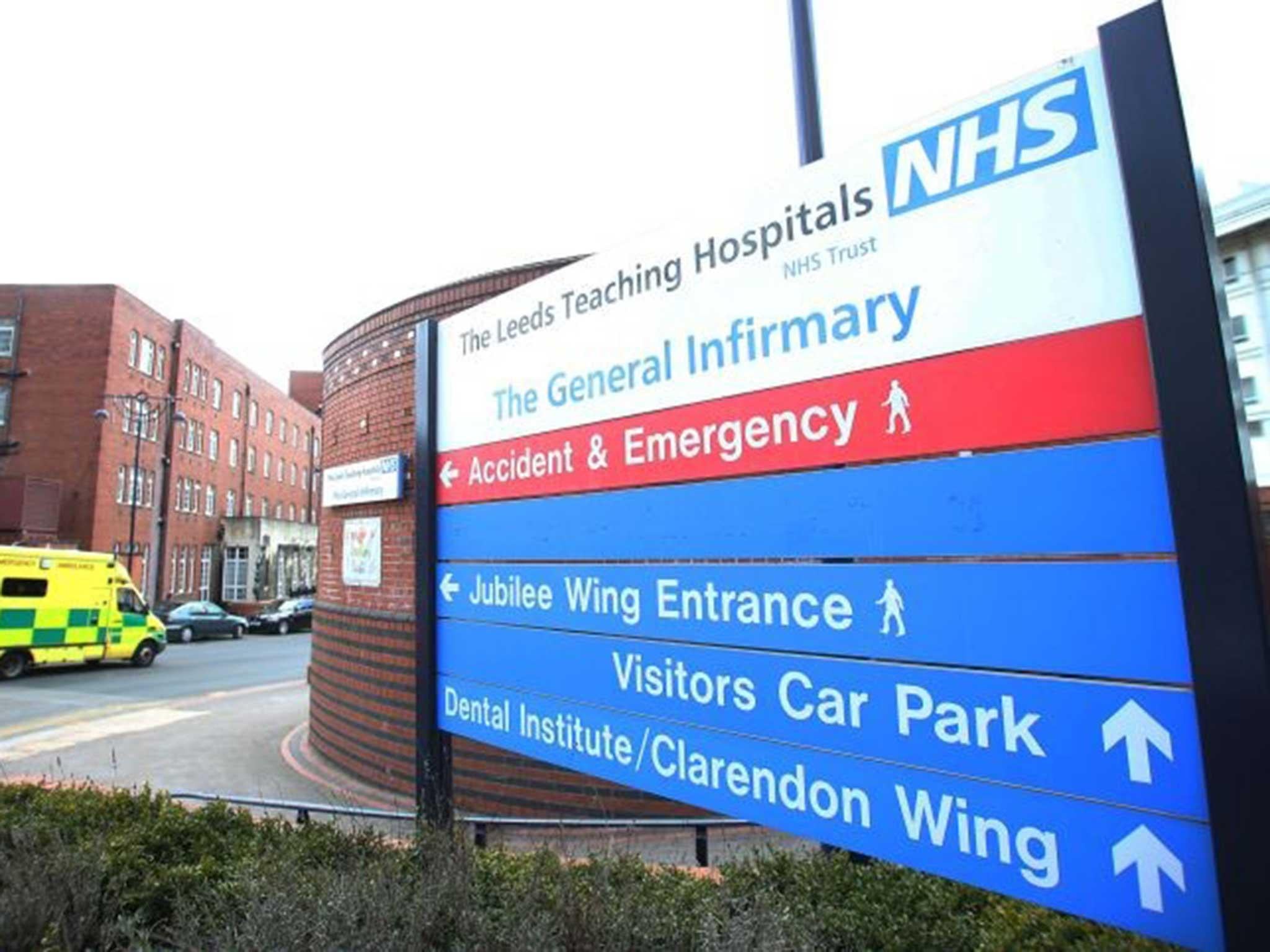Nurse shortages and lack of beds force hundreds of surgery delays
‘Patient care has gone downhill, I feel that as a nurse you don’t want to say the care is bad but it’s not the care that I would like to give’

Almost 300 operations were cancelled on the day they were due to take place in the summer because of a lack of critical care beds and nurses at one of England’s largest hospitals, The Independent has learned.
The situation has now become so serious at Leeds Teaching Hospitals Trust that bosses sent out an appeal at the weekend for any nurse from the trust to work extra hours in its intensive-care units in exchange for enhanced pay, regardless of their experience.
Staffing ratios in intensive care – where the sickest patients fight for their lives – have been stretched beyond previously acceptable limits.
The situation is being repeated at trusts across the UK and The Independent has been told of operations delayed for the same reasons in London, Brighton, Wales and Scotland.
National leaders in critical care nursing have warned of the risks to patient safety of stretching nurse-to-patient ratios too far.
Intensive care is a highly skilled environment in which patients are often connected to multiple machines to help them to breathe and support their organs which need constant monitoring by nurses.
At Leeds, 283 operations were cancelled at the last minute in August and July mainly due to critical care bed capacity.
In a message to trust staff at the weekend, bosses said: “We have staffing shortfalls in our critical care wards this weekend. We are therefore asking for support. If you don’t usually work in critical care then this will be in a supernumerary supportive shift (similar to what critical care used during the first and second waves of significant Covid patients).”
On Saturday evening, the situation became so bad at the Leeds General Infirmary that the trust had to suspend its critical care outreach team to hospital wards. This service is designed to help spot patients who are deteriorating so they can receive intensive care sooner.
One nurse who works on wards at the Leeds trust says it was suspended repeatedly in recent weeks due to staffing shortages.
She says: “Patient care has gone downhill, I feel that as a nurse you don’t want to say the care is bad but it’s not the care that I would like to give. You can’t split yourself in two to look after more patients.
“I was worried about staffing levels three years ago, now I don’t know what the word is but it’s more than worried. You leave the ward worrying, for example, about not giving antibiotics on time when you know you’re risking someone dying of sepsis.”
The nurse added that her colleagues “were running on empty” with not enough support for their wellbeing or mental health.
She says the ratio of nurses to patients in intensive care reached one to four earlier this year, compared with the usual one to one. On general wards nurses were sometimes looking after 12 or more patients.
She adds: “These can be patients who are doubly incontinent who need positioning and looking after.”
The Royal College of Nursing has warned of an NHS workforce crisis as 18 per cent more sick days were recorded among nurses and health visitors in May compared with May 2019.
The UK Critical Care Nursing Alliance, made up of six nursing organisations, has said changes to nurse-to-patient ratios must only be stretched in “exceptional circumstances”, adding: “Ratios must be returned to normal as soon as practicable as these staffing levels are unsustainable for nurses’ well-being and for patient safety.”
A meeting of the board at Leeds Hospitals Trust on Thursday was told the critical care units were under “significant pressure”, adding trust executives had accepted there was a risk staffing ratios would need to exceed the current guidance.
By August, the trust had over 70,000 patients on its waiting list, including 262 who had waited over two years for treatment.
Dr Andy Breen, clinical director for adult critical care at the Leeds trust, said: “As one of the largest acute hospital trusts, we frequently move staff between our critical care teams, prioritising those critical care units with the most urgent needs.
“Critical care outreach staff at one hospital were moved to different units this weekend for a short period of time. However, our staff maintained their 1:1 ratio to support level three critical care patients at all times and contingency plans were in place to address the needs of any deteriorating patients on our general wards.”
The trust says it is recruiting staff. The NHS is planning a fast-track training course for 10,500 staff to try to boost levels in critical care.
Health Education England says it had £10m to help train nurses and other health professionals to support staff in critical care.
Join our commenting forum
Join thought-provoking conversations, follow other Independent readers and see their replies
Comments
Bookmark popover
Removed from bookmarks